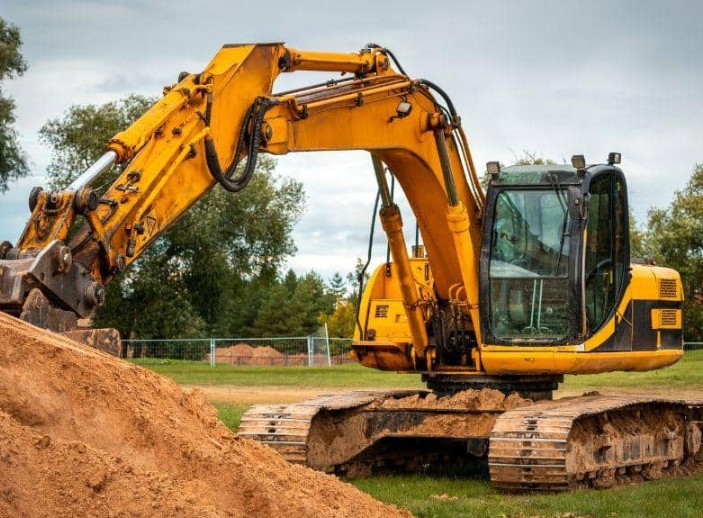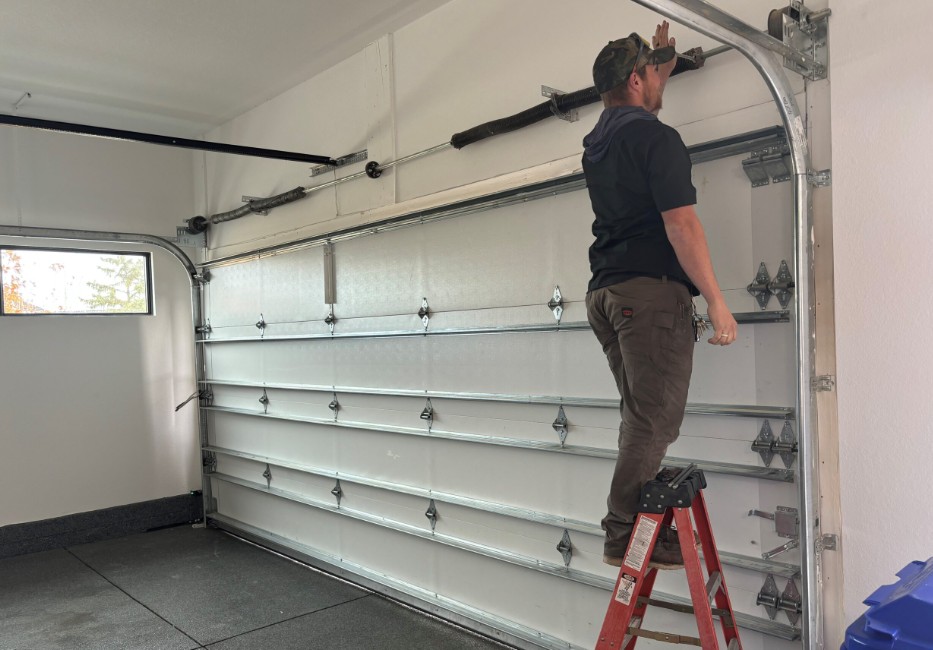Fort Worth real estate market in 2023: Here are 5 predictions
A crane can be seen atop what will be Deco 969, the apartment tower under construction in downtown Fort Worth, on Dec. 6. Deco 969 will have 27 stories of luxury apartments.
Navigating the real estate markets in Dallas-Fort Worth will be tricky this year, especially with the overall economic uncertainty that could impact consumer spending, construction costs and demand for office space.
Experts from across the industry gathered Thursday to look at what 2023 could bring.
The Real Estate Council of Greater Fort Worth hosted its annual forecast with discussions of data, trends and predictions. Hillwood president Mike Berry led the conversation with Fort Worth-based business leader and private investor John Goff.
Here’s a look at five takeaways from the event, held at the Fort Worth Convention Center.
The housing market could face challenges in early 2023.
There’s still strong demand for houses in North Texas from people moving here from the coasts. At the same time, we may see a low inventory of homes in Dallas-Fort Worth, said U.S. Rep. Roger Williams of Fort Worth. The short supply of homes has been attributed to rising interest rates and ongoing supply chain issues.
“I think you’re going to see the Fed raise interest rates a couple more times,” said Williams, who is chairman of the U.S. House Committee on Small Business. He said he thinks the way to stop inflation is to create product supply and incentives for businesses to build in America.
“The demand, I think, is still there,” Williams said. “But we have to deal with the supply.”
The Beck Group’s senor pre-construction manager, Jennifer Siehling, predicts a slowdown in building.
“We’re expecting construction activity to slow its rate of growth over the next year,” Siehling said.
The first half of 2023 will be the most challenging for new home construction, Seihling said. This means prospective homebuyers may face higher prices than usual. Some experts say this could level off toward the latter half of the year.
In December, the median price of homes in Fort Worth rose slightly to $340,000 as inventory of homes on the market remained very tight. A listed property spent an average of 51 days on the market in December, much longer than during the summer when houses sold in an average of 16 days, according to data from the Greater Fort Worth Assocation of Realtors.
The office market continues to see trends in flight-to-quality
As companies continue to return more staff to offices, under a range of in-person and hybrid work models, experts see demand for high-quality Class A office space with a focus on the best amenities, said Cannon Camp, JLL Fort Worth’s senior vice president.
A few recent examples include Dickies relocating its global headquarters from West Vickery Boulevard to newer accommodations in The Tower complex downtown, and the sales of the Oncor Building and Oil & Gas Building for conversion into multi-family development.
In The Shops at Clearfork, developers are looking to build 130,000 square feet of offices across five stories on a vacant block at 5155 Marathon Ave., Camp said.
We will see more apartments in Dallas-Fort Worth
The Metroplex is expected to see the completion of 25,000 apartments by the end of 2023, the most out of any U.S. metro, according to forecast data from Institutional Property Advisors. If forecasts are correct, the Metroplex will gain nearly 3{73375d9cc0eb62eadf703eace8c5332f876cb0fdecf5a1aaee3be06b81bdcf82} more multi-family units.
The number of new apartments this year in Dallas-Fort Worth far exceeds the next highest, 19,000 new units in New York. Austin is third with 18,000 units expected this year.
Put another way, 1 in 16 apartment units built in the United States this year will be in Dallas-Fort Worth.
The Metroplex also is predicted to have the highest multi-family net absorption of all top 10 metros in the U.S., according to IPA data. Net absorption, or the difference between apartment units leased and vacated, is expected to reach more than 17,000 units by the end of 2023, an indicator of a strong multi-family market.
Fort Worth should see more than 1,600 apartment units delivered by the end of the year, said Drew Kile, IPA’s executive managing director.
Will an anchor tenant leave downtown Fort Worth?
Several experts speculated about the future of Fort Worth’s central business district.
Overwatch Fund’s Ben Loughry and JLL’s Camp predict a substantial tenant will vacate downtown by the end of 2023. While this detail has not been confirmed and remains a prediction, Camp listed the downtown departures of Basic Energy, United Health and the Fort Worth Star-Telegram as examples of this past year’s downtown vacancy, indicating a similar trend could follow. The Star-Telegram moved into a new space last summer that was more conducive to a hybrid work model.
Fort Worth had the lowest percentage of office-using jobs compared to Dallas, Houston, Austin and San Antonio. More than 18{73375d9cc0eb62eadf703eace8c5332f876cb0fdecf5a1aaee3be06b81bdcf82} of Fort Worth’s total job market is made of office-using jobs, or jobs in key industries like financial, professional and IT services that drive demand for office space.
Fort Worth and Tarrant County are lagging behind the major metros of Texas, Camp said.
“This is something we want to continue to watch closely as the economy changes,” Camp said.
Still, downtown Fort Worth net absorption remained positive measuring good health in the market.
The future of downtown high-rises could keep shifting with conversion of office space to future multi-family and hotel development.
John Goff: Break the mold with investment decisions
“Follow the population growth,” Goff said, when discussing his journey founding his first real estate company and making major investment decisions that led him to his successful career today.
The U.S. population is expected to grow by more than 18.4 million people by 2030, and Texas is the No. 1 U-Haul inbound state in the U.S., meaning Texas is a great place to be in real estate, Goff said.
Goff and Hillwood’s Berry discussed the upcoming Texas A&M-Fort Worth campus that will add three buildings to the south end of downtown and create public and private partnerships between students and surrounding businesses. Goff describes the project as the “most significant thing for the city in the last 100 years.”
The campus is predicted to attract new businesses and increase corporate relocation to Fort Worth as business professionals seek young talent in their target industries.
“It’s like four corporate relocations in one,” Berry said.








